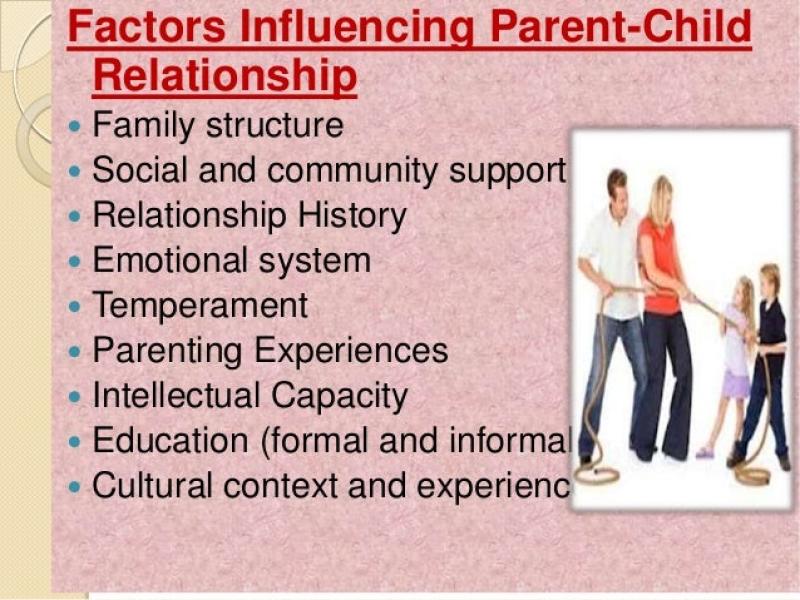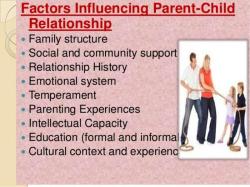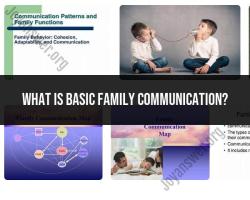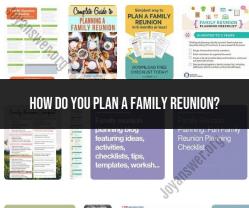What is a healthy relationship in parenting?
A healthy parenting relationship involves various elements that contribute to a supportive, nurturing, and respectful environment for both parents and children. Here are some key elements of a healthy parenting relationship:
Communication:
Open Communication: Encouraging open and honest communication between parents and children fosters trust and understanding.
Active Listening: Listening attentively to children's thoughts, feelings, and concerns without judgment or interruption promotes a sense of validation and support.
Mutual Respect:
Respectful Interactions: Demonstrating respect for each other's opinions, boundaries, and emotions sets a positive example for children and helps build strong relationships.
Consistent Discipline: Implementing fair and consistent discipline strategies that focus on teaching and guiding rather than punishment fosters respect and understanding.
Support and Empathy:
Emotional Support: Providing emotional support and being empathetic towards children's feelings helps them develop a secure attachment and emotional intelligence.
Encouragement and Validation: Acknowledging children's achievements, efforts, and individual strengths helps boost their self-esteem and confidence.
Collaboration and Teamwork:
Collaborative Decision-Making: Involving children in age-appropriate decision-making processes fosters a sense of responsibility and empowerment.
Parental Unity: Presenting a united front in parenting decisions and conflict resolution ensures consistency and stability in the family environment.
Boundaries and Flexibility:
Setting Boundaries: Establishing clear and reasonable boundaries while allowing space for independence and autonomy promotes a balance between structure and freedom.
Adaptability: Being adaptable to changing circumstances and adjusting parenting approaches based on the child's developmental stage and needs is crucial for effective parenting.
Self-Care and Role Modeling:
Self-Care: Taking care of one's physical and mental well-being sets an example for children about the importance of self-care.
Positive Role Modeling: Being a positive role model by demonstrating healthy behaviors, conflict resolution skills, and effective communication lays the foundation for children to emulate positive traits.
Continuous Learning and Growth:
Learning Together: Embracing a learning mindset and being open to evolving parenting approaches based on new information and experiences is important for continuous growth.
Seeking Support: Seeking guidance and support from parenting resources, professionals, or support groups when needed demonstrates a commitment to improving parenting skills.
A healthy parenting relationship evolves and adapts over time, fostering an environment where children feel loved, supported, and equipped with the tools they need to navigate the world with confidence and resilience.
Nurturing Open Communication and Emotional Connection
Effective communication and emotional connection are the cornerstones of a strong parent-child relationship. Building a foundation of open communication fosters trust, understanding, and a sense of security for the child. Here are some strategies for nurturing open communication and emotional connection:
Create a Safe and Supportive Environment: Make your child feel safe to express their thoughts and feelings without fear of judgment or criticism.
Active Listening: Engage in active listening by giving your child your undivided attention, making eye contact, and reflecting back what you hear.
Encourage Emotional Expression: Encourage your child to express their emotions freely, both positive and negative, without suppressing or dismissing them.
Initiate Conversations: Take the initiative to start conversations with your child, even if they are reluctant at first. Find common interests or activities to spark discussions.
Respect Their Privacy: Respect your child's need for privacy while maintaining open communication. Knock before entering their room, and avoid prying into their personal matters.
Establishing Clear Expectations and Consistent Discipline
Clear expectations and consistent discipline provide structure and guidance for children, helping them develop self-regulation and make sound choices. Here are some strategies for establishing clear expectations and consistent discipline:
Set Clear Rules and Expectations: Establish clear, age-appropriate rules and expectations for behavior, both at home and in other settings.
Explain the Reasons Behind Rules: Help your child understand the rationale behind the rules, connecting them to safety, respect, and consideration for others.
Consistent Enforcement: Enforce rules consistently, applying consequences fairly and without favoritism. Avoid harsh or excessive punishments.
Positive Reinforcement: Focus on positive reinforcement rather than constant reprimands. Acknowledge and praise good behavior to encourage repetition.
Age-Appropriate Discipline: Adapt discipline strategies to your child's age and developmental level. Avoid using physical punishment or yelling.
Fostering Mutual Respect and Encouragement
Mutual respect and encouragement create a positive and supportive environment where children feel valued and empowered. Here are some strategies for fostering mutual respect and encouragement:
Treat Your Child with Respect: Model respectful behavior towards your child, even when disciplining them. Value their opinions and feelings.
Encourage Independence: Support your child's growing independence and autonomy, while providing guidance and support when needed.
Celebrate Their Achievements: Recognize and celebrate your child's accomplishments, both big and small, to boost their self-esteem and motivation.
Show Empathy: Understand your child's perspective and feelings, even when you disagree with their actions or choices.
Encourage Self-Expression: Encourage your child to express their unique talents, interests, and opinions, fostering their individuality.








